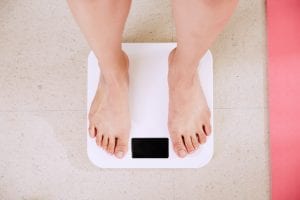Preparing your body for pregnancy

If you’re planning to have a baby there are some simple lifestyle changes you can make to boost your health. These may help increase your chances of conceiving and having a healthy full-term pregnancy.
Take a daily 800mcg (0.8mg) folic acid supplement
Most practitioners recommend you take a folic acid supplement for three months before conceiving and for the first 12 weeks of pregnancy. Folic acid greatly reduces the risk of your baby having a neural tube defect such as spina bifida. Read more
Give up smoking
Smoking can affect both sperm and egg quality and is one of the primary causes of having a low birth weight baby; it also brings the menopause forward and damages the ovaries, so it makes sense to quit now. Men who smoke have been shown to have abnormalities in sperm production. Cigarette smoking affects both sperm quality and quantity. Read more
Ask your GP to check your rubella status
Immunity to rubella (German measles) can wear off and as the disease is extremely harmful to your unborn baby, it makes sense to check your status before you conceive. You can have another vaccination if needed.
Keep to a healthy weight
If you have a body mass index of 29 or more, it may take you longer to conceive. This is because excess oestrogen (a female sex hormone) is stored in your body fat cells and can cause hormone imbalances that interfere with ovulation. Even losing 5-10 per cent of your bodyweight if you’re overweight may trigger ovulation again. Being underweight is also bad for your fertility. 50 per cent of women with a BMI of 19 or less suffer from irregular periods.

Make sure your partner is a healthy weight too
Overweight men have a lower sperm count because their male hormone testosterone can convert to the female sex hormone oestrogen. Men with a BMI of less than 20 also have lower sperm counts.
Take a vitamin D supplement
Vitamin D is important for getting pregnant. You get it from two sources – exposure to sunshine or foods such as oily fish and fortified breakfast cereals. It can be difficult to get enough sunlight exposure in winter for the body to make enough vitamin D and it’s hard to get enough from food alone, so a supplement may be a good back up.
Eat healthily
A balanced diet containing lots of fruit and vegetables rich in antioxidants (particularly vitamins C and E, selenium and beta carotene) can prevent damage to sperm and eggs. Reduce saturated fat and minimise your sugar intake. Take a preconception/pregnancy vitamin supplement (not containing vitamin A) as a back-up if you may not be getting enough antioxidants from your diet.
Drink alcohol within safe limits
Drinking too many units of alcohol can affect sperm and egg quality. It can affect male fertility by causing chromosomal damage, decreased motility (the swimming rate of the sperm), and erectile dysfunction. The Ministry of Health recommends women avoid alcohol completely if they are trying to conceive or are pregnant. Read more
Learn to chill out
Too much stress can affect your fertility, so try and take some time out to relax – do something you enjoy and switch off from all the pressures in your life. Book a massage or facial, take a yoga class, enjoy a soak in the bath or a 30-minute jog/swim or workout (but don’t over-train). Some studies suggest acupuncture may reduce stress levels.
Avoid recreational drugs
Taking drugs can seriously impact your chances of getting pregnant, whilst studies have also shown that there is a high correlation between drugs and miscarriage, low birth-weight and premature babies. It is also known to affect sperm quality.
Herbal medicines and prescription medication: If you take any medication, whether prescribed or not, you should check with your GP if they will affect your fertility and on the development of your baby, once you are pregnant.
See your doctor for advice if you have a medical condition which may affect your ability to conceive or carry a baby normally
These include Polycystic Ovary Syndrome (PCOS), endometriosis, thyroid dysfunction, inflammatory bowel disease and diabetes.


